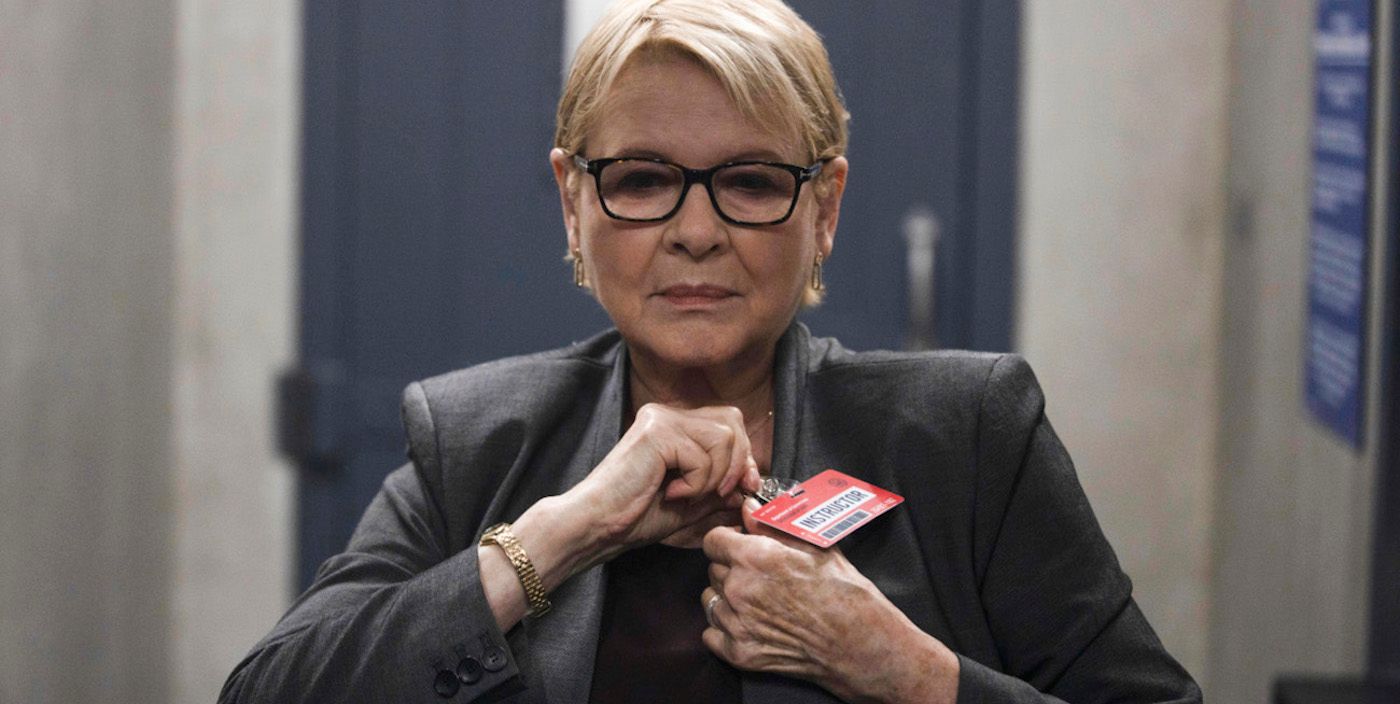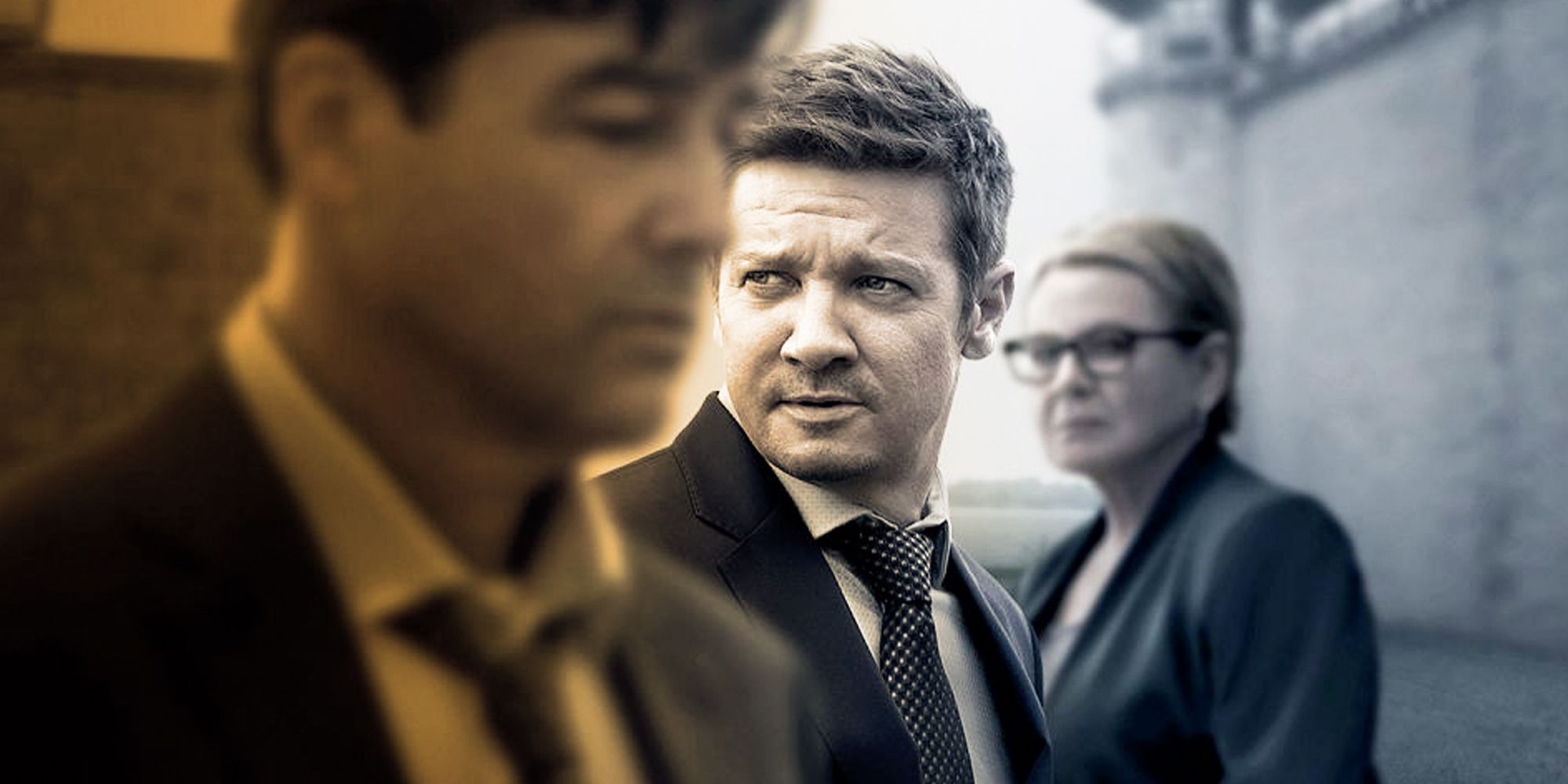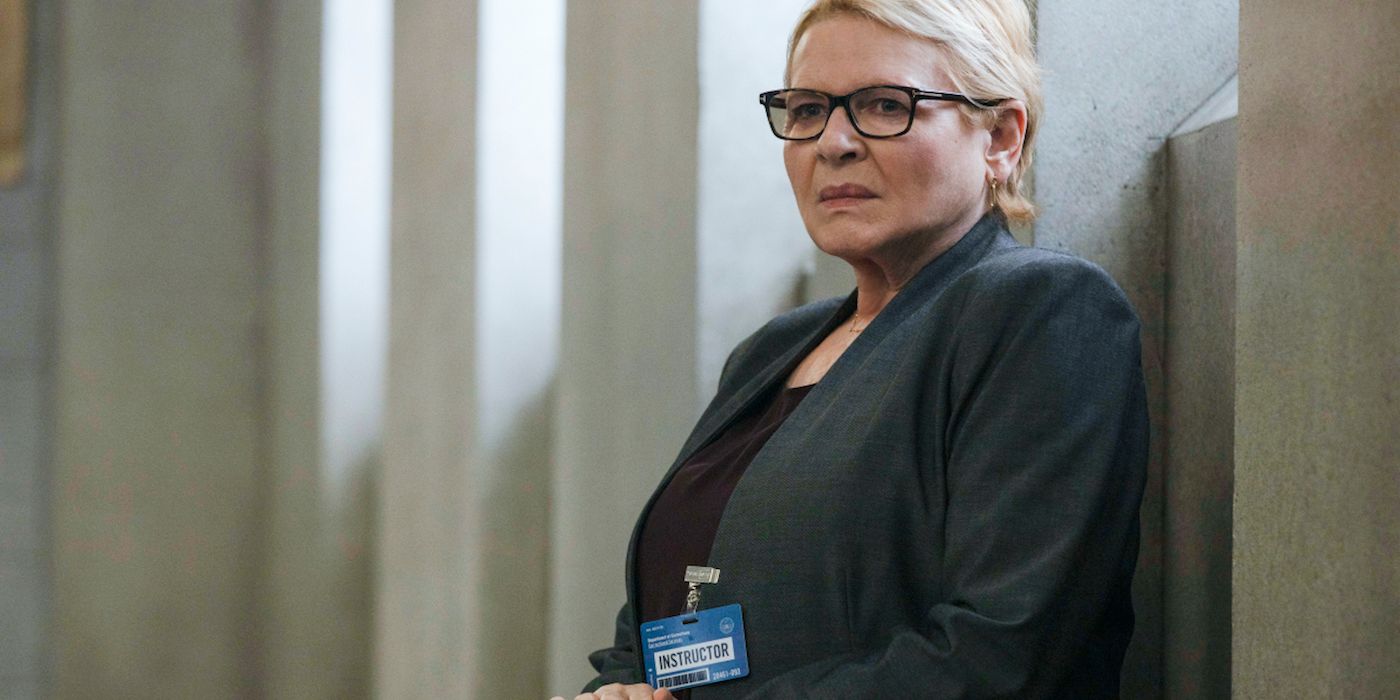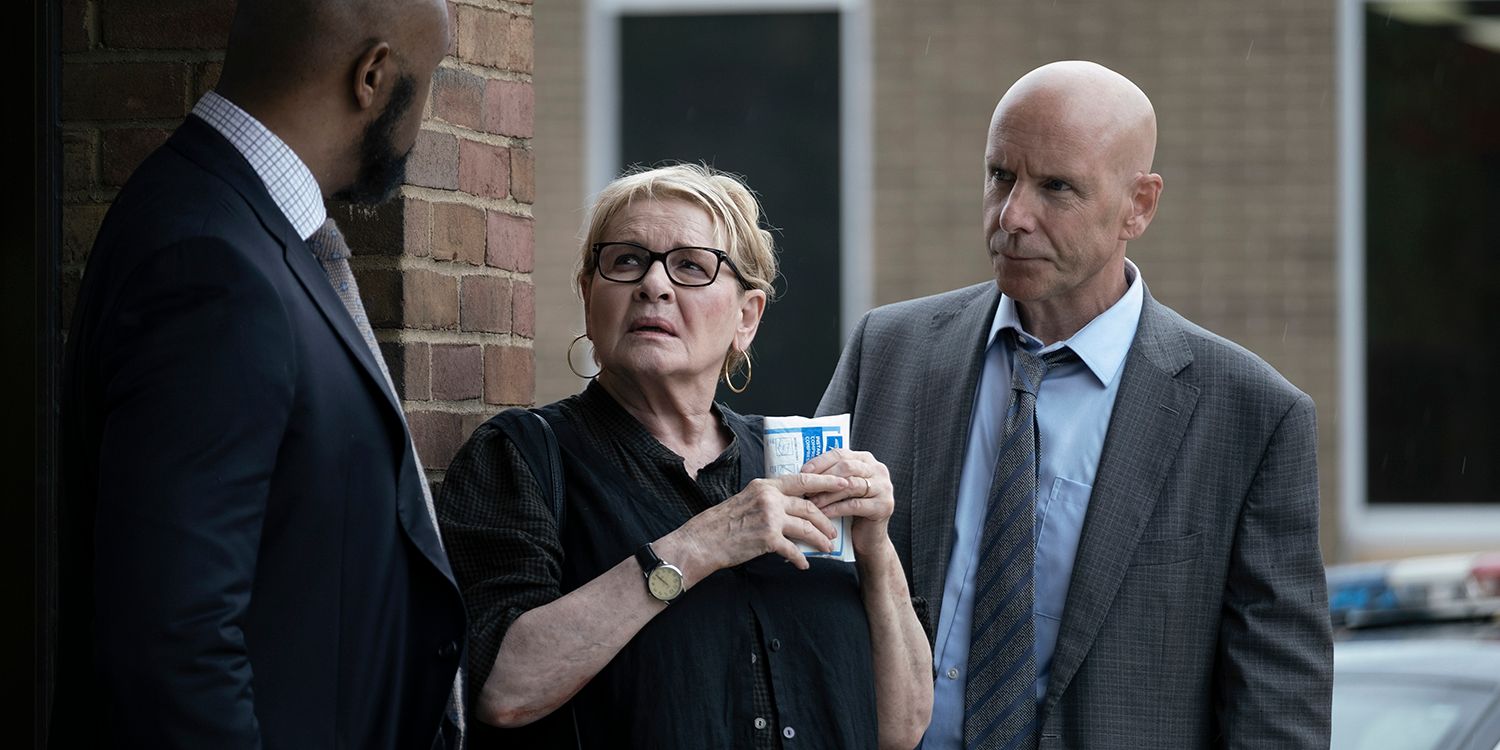[ad_1]
The McLusky brothers’ mother, Miriam, teaches history to incarcerated women in Mayor of Kingstown, and her lessons are fascinating — but is the Mayor of Kingstown true story, especially the Trail of Tears dogs left behind, accurate? Mayor of Kingstown continues co-creator Taylor Sheridan’s pattern of complex themes, delving into the shortcomings of America’s prison system along with Miriam’s lessons, which offer an elegant, yet devastating, look into systemic racism. Mayor of Kingstown is set in a town with seven prisons within a 10-mile radius where the McLusky brothers make it their business to blur the line between the criminals and law enforcement.
The family matriarch, Miriam, however, seems displeased with the McLusky brothers’ roles in Kingstown. Miriam contrasts her son’s roles in Mayor of Kingstown and is a particularly poignant character on the show because she believes not in facilitating the broken system as they do, but in bettering the system through rehabilitation and education. Throughout the first three episodes, Miriam teaches three Mayor of Kingstown true story lessons, each with poignant attention that is hard to ignore. Here’s a look at the lessons Miriam has taught so far and how accurate they really are, including the heartbreaking Cherokee dogs Mississippi River crossing.
Lesson 1 – The Civil War, the Oppressors and the Oppressed
In Mayor of Kingstown episode 1, Miriam discusses the Civil War. The book Bury My Heart At Wounded Knee (brought to screen in the 2007 film by the same name starring True Blood’s Anna Paquin) is seen on the student’s desks. The Mayor of Kingstown true story lessons sees her tell her students that the Civil War is “the only time in history, the oppressors fought each other over the rights of the oppressed” and goes on to say that a decade after the Union victory, “a new union army made up of mostly imprisoned confederate soldiers and immigrants reignited the genocide begun by Columbus some 400 years earlier.”
As the Civil War ended in 1865, Miriam is likely talking about the Battle of the Little Bighorn in the Mayor of Kingstown true story, which happened in 1876 when George Custer’s 7th Cavalry clashed with over 10,000 Native Americans gathered at the Little Bighorn River to stand in defiance of their people’s confinement to reservations. The battle resulted in the death of Custer and his men and fueled the continuation of the American-Indian Wars (a controversial time in American history well-depicted in the iconic film, Dances with Wolves, by film star Kevin Costner).
A student approaches Miriam about the Mayor of Kingstown true story and says that she grew up on Pine Ridge. The student is referring to Pine Ridge Indian Reservation in South Dakota, where the battle of Wounded Knee took place in 1890. Many believe the massacre at Wounded Knee was revenge for the lives lost at Little Bighorn, which ties the student’s statement into Miriam’s lesson as well as the book the class is studying.
Lesson 2 – The Cherokee Moving West
In Miriam’s second Mayor of Kingstown true story lesson, she talks about the Cherokee being moved further west to Oklahoma. She tells a heart-wrenching story of how the Cherokee were forced to abandon their dogs — who they see not as pets but as guides with the souls of their ancestors — when made to cross the Mississippi River. Miriam (played by movie actress Dianne Wiest) continues as several of the students are seen crying, telling them that the dogs howled and leaped into the river, and drowned while trying to reach their families.
The heartbreaking Cherokee dogs Mississippi story comes from Alexis de Tocqueville’s Democracy in America (via TOTA) and is a first-person account of the tragic tale; however, Tocqueville’s story involves the Choctaws instead of the Cherokee. Tocqueville writes, “The Indians had all stepped into the bark which was to carry them across, but their dogs remained upon the bank. As soon as these animals perceived that their masters were finally leaving the shore, they set up a dismal howl, and, plunging all together into the icy waters of the Mississippi, they swam after the boat.”
Miriam’s Mayor of Kingstown true story has added details about the Cherokee (Choctaw) peoples begging for the captains to turn back, but there is no mention of it in the text. Furthermore, Tocqueville claims that before boarding the boat, “No cry, no sob was heard among the assembled crowd: all were silent. Their calamities were of ancient date, and they knew them to be irremediable.” There is also no mention of a stronger dog fighting harder than the rest, nor of the Native Americans cheering the dog on. These details add to Miriam’s character development as a teacher employing storytelling tactics to engage her students.
Lesson 3 – The Origins of Slavery and The African King
The next Mayor of Kingstown true story Miriam teaches is in a class on the origin of slavery in Mayor of Kingstown episode 3 that is drawn from the historical account of Pope Nicolas V from Crónica dos feitos da Guiné by Gomes Eanes de Zurara (which is available through College of Charleston’s Lowcountry Digital History Initiative online exhibit “African Laborers for a New Empire: Iberia, Slavery, and the Atlantic World.”) Eanes de Zurara tells the story of the young Portuguese ship captain, Antam Goncalvez, who kidnapped a small group of Berbers with the help of his crew and another.
When the Berbers reached Portugal they negotiated their freedom with the promise of 10 slaves upon their safe return to Africa. The Berbers were returned, and 10 sub-Saharan African slaves were taken in exchange. In Mayor of Kingstown, however, Miriam’s story is that of an African king who is abducted by Portuguese explorers and negotiates his freedom by offering to collect 10 more slaves for the explorer when he returns the next year and 100 the year after that. Miriam concludes her lesson by asking, “would slavery have existed without this bargain? Perhaps the better question should be ‘would the bargain have existed without the desire for a slave?”
While a provocative question and an interesting Mayor of Kingstown true story, this question is largely off-base since slavery’s origins can be traced back to Mesopotamia in 6800 B.C. as is pointed out by Free the Slaves (via freetheslaves.net). Miriam’s point and purpose in Mayor of Kingstown are clear, however, as she strives to educate the incarcerated women in hopes of rehabilitation contrasting her sons’ associations with the prison system that facilitate more crime.
How Much Of Mayor Of Kingstown Is True Overall
While Miriam’s history lessons are intriguing, what of the show itself? Is there a Mayor of Kingstown true story? Technically, the series and the McLusky family as a whole isn’t based on any real people or particular events in history. However, co-creators Taylor Sheridan and Hugh Dillon had to get the idea from somewhere. In an interview with Newsweek, Hugh Dillon spoke up about how the idea for Mayor of Kingstown came to be, and much of it has to do with his upbringing. Dillion admitted, “I can tell you this, I grew up in a town with 9 penitentiaries, a maximum, a medium and a women’s [penitentiary], minimum security.”
The series makes it seem like there is a Mayor of Kingstown true story, but Dillon’s upbringing proved that he was surrounded and inspired by people involved with the prison system because of its close proximity. Like Miriam, Dillon’s mother was a teacher. He also had friends whose parents were prison guards and wardens. In contrast, Dillon admits that he knew plenty of convicts as well. His coming-of-age surroundings greatly influenced Mayor of Kingstown, despite the series not being based on any one true story in particular. While the co-creator doesn’t go into detail, it’s probable that many of the people he knew inspired the Mayor of Kingstown cast.
Dillon continued to speak of his attraction for his surroundings growing up, and how that curiosity lent itself to Mayor of Kingstown. Reportedly, Dillon was “fascinated” with the dichotomy of the civilized world living up against places that could hold people capable of such darkness. “And as I got older you see these things that happen in our society, child killers to serial killers to murderers to whatever horrific thing we’re seeing in the news, and they’re coming to your town.” So, while there is no Mayor of Kingstown true story, the show itself is somewhat based in reality.
[ad_2]
Source link




